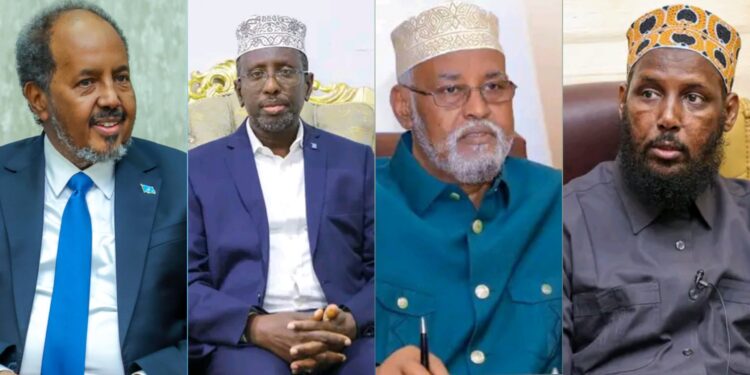
Mogadishu (Commentary) — The previous director of the Heritage Institute for Coverage Research, Abdirashid Hashi, commented on the management failures that plague President Hassan Sheikh Mohamud.
This verdict is shared by a piece of Somali political Islamists. Political Islam formally entered Somalia’s political panorama in January 2009 when President Sharif Ahmed was elected in Djibouti after the 2008 settlement between the Transitional Federal Authorities of Somalia and the Alliance for the Reliberation of Somalia. Hashi served as Info Minister within the first council of ministers appointed by Omar Abdirashid Ali Sharmarke, the then Prime Minister.
Damuljadid, the political faction to which President Hassan Sheikh Mohamud belongs, achieved its political targets with sponsorship from Qatar and different Arab nations that funded NGOs in Mogadishu earlier than 2012. The faction fused opportunistic political affiliations with the Muslim Brotherhood and clan pursuits. As a president who sees Mogadishu as his stronghold, Hassan Sheikh Mohamud defines Somalia’s overseas coverage based mostly on the pursuits of his constituency.
This facet of his overseas coverage has not gone unnoticed by Kenya and Ethiopia—two neighbouring nations attuned to Somali politics. Because the late Ethiopian Prime Minister Meles Zenawi acknowledged in 1995: “We perceive the intricacies of Somali politics.” Zenawi’s remark got here in response to a query by former BBC Somali Service star interviewer Abdullahi Hagi, relating to claims by former Somaliland President Mohamed Ibrahim Egal that “terrorists are based mostly in Laascaanood and Boorame.”
Beneath President Mohamud, Somalia has grow to be a rustic oblivious to its personal tribulations and limitations. His tendency to misuse worldwide goodwill and politicise the position of peacekeepers threatens to additional diminish Somalia’s standing on the worldwide stage.
A month in the past, the Federal Authorities of Somalia hailed Ethiopia’s exclusion from the peacekeeping pressure as a diplomatic victory in opposition to the Ethiopian Prime Minister Abiy Ahmed. But, the Ankara Somalia-Ethiopia Settlement now permits Ethiopian forces to be a part of the peacekeeping mission in Somalia.
Somali political Islamists have confirmed as adept at courting Ethiopian assist because the warlords earlier than them. President Hassan Sheikh Mohamud, who authored an embargoed doctoral dissertation titled Analyzing the Challenges of Clan Politics in Statebuilding: A Case Research of Somalia, echoed the view expressed by Zenawi in a 2008 interview. “An oversupply of nationwide sentiment is just not the issue in Somalia. The issue is an absence of it. The issue is an oversupply of sub-sub-clannish attitudes” Zenawi stated.
Zenawi, like President Mohamud, employed essentialist descriptions of Somali politics, omitting the central position of politicians in perpetuating the civil warfare after the state collapse in 1991.
Somali political Islamists are more and more recognising that political Islam is incompatible with political realities in Somalia.
© Puntland Publish, 2024









